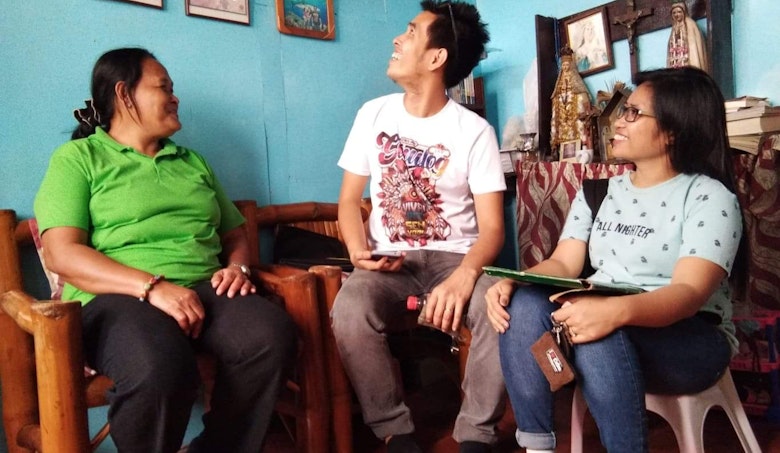Identifying Foster Care Families through Community Effort and Participation
It has been a challenge for the Philippine government to look for probable foster care families in Cebu City since the enactment of the Republic Act 10165 also known as the Foster Care Act of 2012. The City Social Welfare Office has no record of single foster care families accredited under their watch and consequently the city government did not allocate a fund for this purpose.
The main objective of the Terre des Hommes Netherlands’ Community-based Alternative Care for Commercially Sexually Exploited Children (CARE for CSEC) project is to develop a community-based alternative care program in response to such issues. It had been able to identify and process 15 foster care families to cater them to take on children-at-risk to complement the limitations of the city government.
To date, the project team was able to process the family assessment of seven probable foster families out of 30 prospects in one of the city’s districts - Barangay Budlaan. The other eight (8) probable foster families are to be assessed in Barangays Talamban and Banilad.
One of seven probable foster care families in Budlaan is the family of Vivian Atregenio, a 53-year-old married woman and a member of Barangay Council for the Protection of Children and Budlaan Child Protection Task Force. Her husband is a chef and her three children are now professionals and financially stable.
During the family assessment conducted by the social worker of Cebu City Social Welfare Office, it was apparent that not only Vivian but also her husband and children are very excited for fostering a child who was formerly abused because they want to show care to children at risk. Being a member of the Barangay Council for the Protection of Children, she said that she has experienced fostering a child and she had always volunteered to shelter children temporarily if necessary.
Vivian is an active participant of most seminar and study sessions conducted by the CARE for CSEC project team since year one. But she was not part of prospect foster families randomly interviewed through the baseline study conducted by TDH in 2019. However, upon knowing that the survey team missed to interview her, she asked the barangay officials to endorse her for family assessment and consequently she was able to pass the assessment.
The project team assisted the social workers in conducting the family assessments and interviews of 24 potential families identified by TDH’s baseline study and six families as endorsed by the local government officials.
Based on the said experience, community participation in identifying foster care families is significant because they are familiar with the attitude and family background of the applicants. Thus, undesirable applicants for foster care can be easily identified.
Gender mainstreaming and child participation during the interviews were properly observed by the project team. The team allows the children of the probable foster parents to speak about their perceptions and reluctances in the program. The opinion of the husband as well as the wife is likewise given weight by the social workers and the project staff. To add, they were given time to reflect based on the discussion before a decision to apply as foster care family is attained.
The project team consistently visited the office of the city social welfare services and conducted brief orientation and dialogue with the social workers about the project and encouraged them to conduct the family assessment as mandated by the law. Prior to the scheduled family assessments in Barangay Budlaan, the team was able to obtain the approval of the head of Cebu City Social Welfare Office.
The team also allotted transportation allowance for the social workers dispatched by the head of social workers division of the City SWSO.
Vivian, on one occasion a few days after the family assessment shared with the project team, “I am happy that I was able to pass the family assessment, I am ready to take good care of the foster child to be assigned whatever it takes.
The achievement is due to the cooperation of different members including the active participation of the local government officials such as the Barangay Council for the Protection of Children (BCPC), communities in selecting applicants for the foster care families such as the People’s Organisations (POs), and the CARE for CSEC project team that makes sure that social workers are connecting with foster parents and children.
Down to Zero
Commercial sexual exploitation of children is a phenomenon that affects 2 million children worldwide. In an alliance named 'Down to Zero' Terre des Hommes Netherlands (lead), Plan International Netherlands, Defence for Children - ECPAT, Free a Girl and ICCO Cooperation work together aiming to end commercial sexual exploitation in ten countries in Asia and Latin America by 2020, together with the Ministry of Foreign Affairs of the Netherlands. This 5-year programme enables children and young people to defend their own rights, enables communities to become safer and protective of their children against commercial sexual exploitation enables governments to improve and implement related policies, laws and regulations. The Alliance also collaborates with the private sector, for example in the tourist industry.

